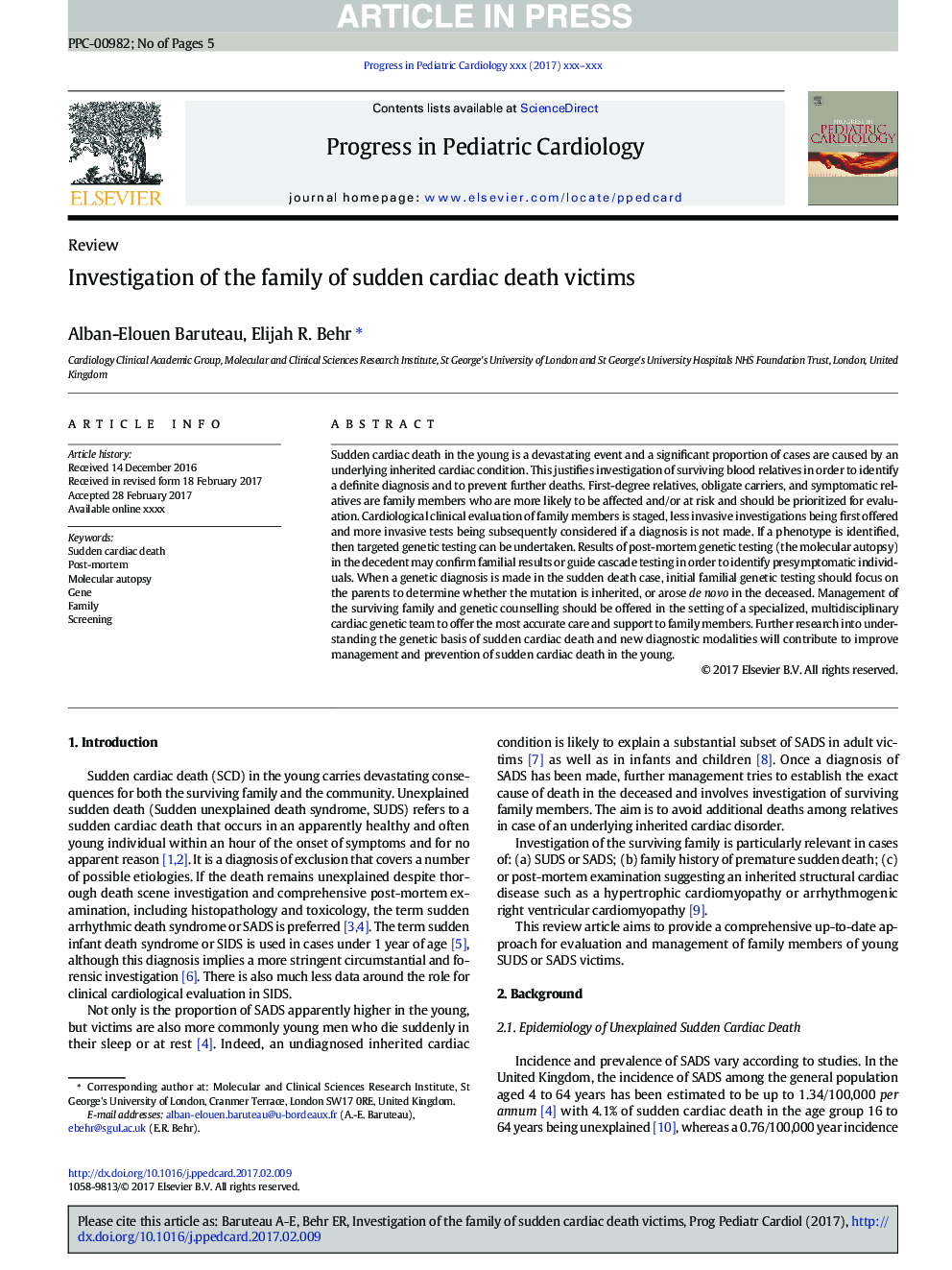| Article ID | Journal | Published Year | Pages | File Type |
|---|---|---|---|---|
| 5619704 | Progress in Pediatric Cardiology | 2017 | 5 Pages |
Abstract
Sudden cardiac death in the young is a devastating event and a significant proportion of cases are caused by an underlying inherited cardiac condition. This justifies investigation of surviving blood relatives in order to identify a definite diagnosis and to prevent further deaths. First-degree relatives, obligate carriers, and symptomatic relatives are family members who are more likely to be affected and/or at risk and should be prioritized for evaluation. Cardiological clinical evaluation of family members is staged, less invasive investigations being first offered and more invasive tests being subsequently considered if a diagnosis is not made. If a phenotype is identified, then targeted genetic testing can be undertaken. Results of post-mortem genetic testing (the molecular autopsy) in the decedent may confirm familial results or guide cascade testing in order to identify presymptomatic individuals. When a genetic diagnosis is made in the sudden death case, initial familial genetic testing should focus on the parents to determine whether the mutation is inherited, or arose de novo in the deceased. Management of the surviving family and genetic counselling should be offered in the setting of a specialized, multidisciplinary cardiac genetic team to offer the most accurate care and support to family members. Further research into understanding the genetic basis of sudden cardiac death and new diagnostic modalities will contribute to improve management and prevention of sudden cardiac death in the young.
Related Topics
Health Sciences
Medicine and Dentistry
Cardiology and Cardiovascular Medicine
Authors
Alban-Elouen Baruteau, Elijah R. Behr,
